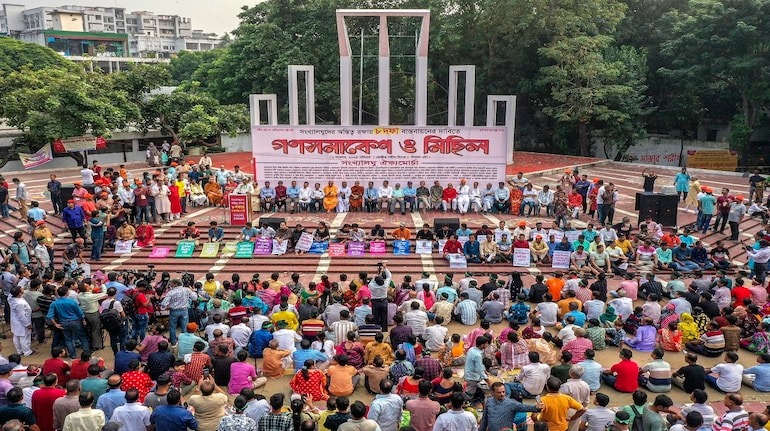
With the fall of Sheikh Hasina's long-standing rule, Bangladesh is facing an alarming rise in Islamist fundamentalism. As reported by The New York Times, religious hardliners are increasingly influencing public life and pushing a theocratic agenda, especially in rural areas. Restrictions on women’s freedoms and threats against religious minorities have intensified in the absence of strong state control.
An interim government led by Nobel laureate Muhammad Yunus now presides over a politically fractured nation. The new leadership aims to restore democracy and reconcile societal divides, but a weakened police force and a non-interventionist military have allowed Islamist groups—once suppressed or banned—to re-emerge and mobilize openly.
Women and Minorities Facing Renewed Harassment
Women who led pro-democracy movements are increasingly marginalized. In rural Taraganj, a women’s football match was cancelled after clerics issued threats, leading to a local curfew. Although the game eventually proceeded under tight security, organizers fear future events may not be possible under ongoing intimidation.
Religious minorities, especially Ahmadiyya Muslims, are under direct attack. Their mosque was stormed the night Hasina's government fell, and their religious freedoms have been curtailed. Clerics like Ashraf Ali have led calls for their destruction, while local leaders report living in fear.
Jamaat-e-Islami and Extremist Groups Gain Momentum
Previously banned groups and mainstream Islamist parties such as Jamaat-e-Islami are seizing the opportunity to reshape the political discourse. They are advocating a more conservative, religiously driven vision for the country. Public demonstrations in Dhaka have called for capital punishment over alleged blasphemy and even demanded the establishment of an Islamic caliphate.
These developments have reignited concerns about Bangladesh's commitment to secularism and pluralism, once championed by Hasina’s Awami League.
Democracy at a Crossroads
While interim government members like Nahid Islam remain hopeful that Bangladesh’s rich cultural traditions and high female labor participation will counter rising extremism, critics are skeptical. They argue that the government's tepid response to radical elements risks accelerating Bangladesh’s drift toward religious authoritarianism.
Observers note similarities with broader regional patterns—from Taliban rule in Afghanistan to religious nationalism in India and extremist violence in Pakistan.
As Bangladesh prepares for national elections later this year, the outcome may determine whether the country upholds its pluralist ideals or succumbs to growing theocratic pressures.
Read More: The Day the Oil Stood Still How a Single Drone Strike Just Rocked Global Markets

 Share
Share



